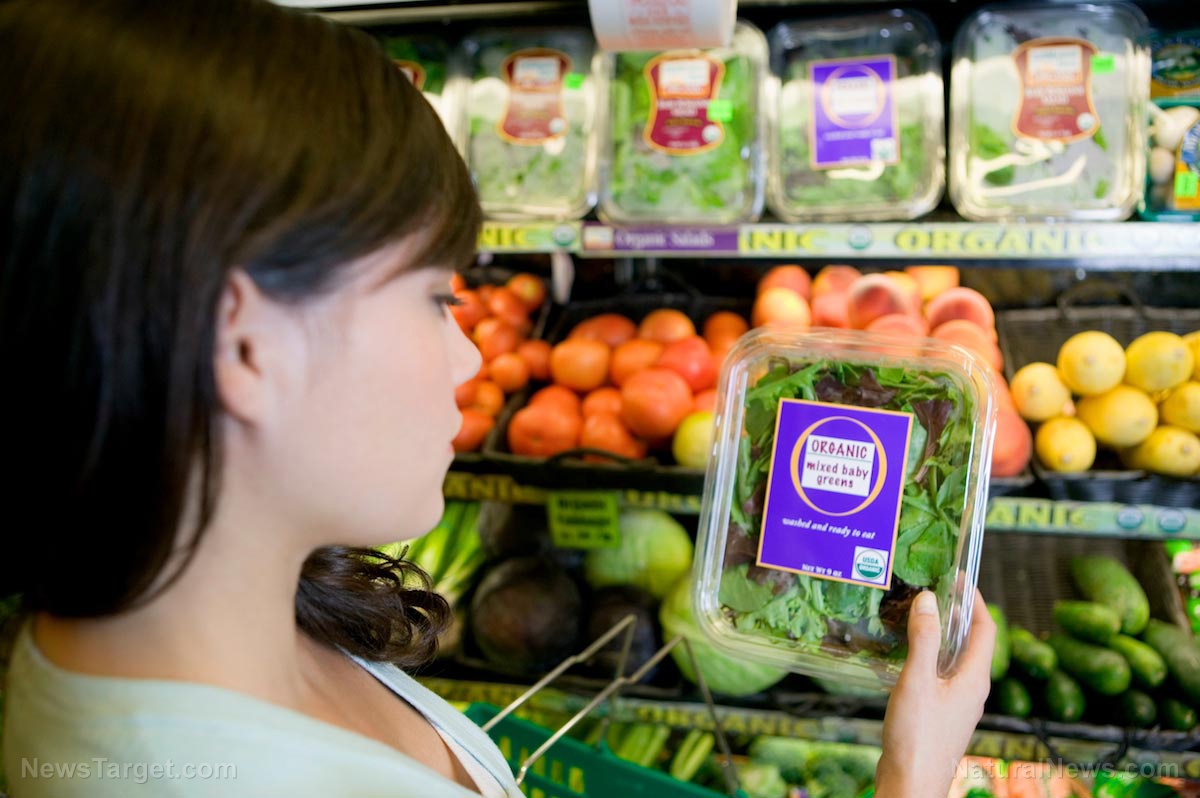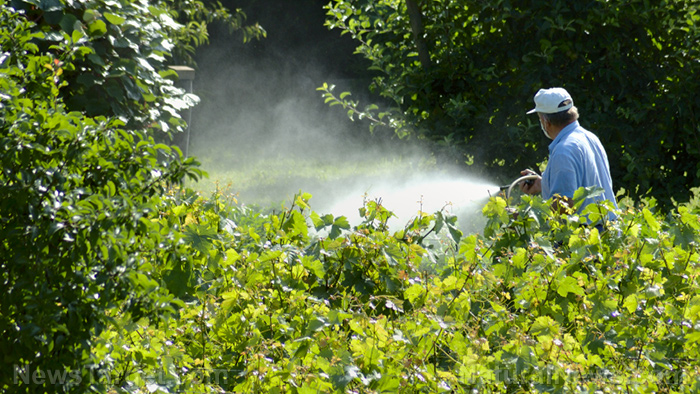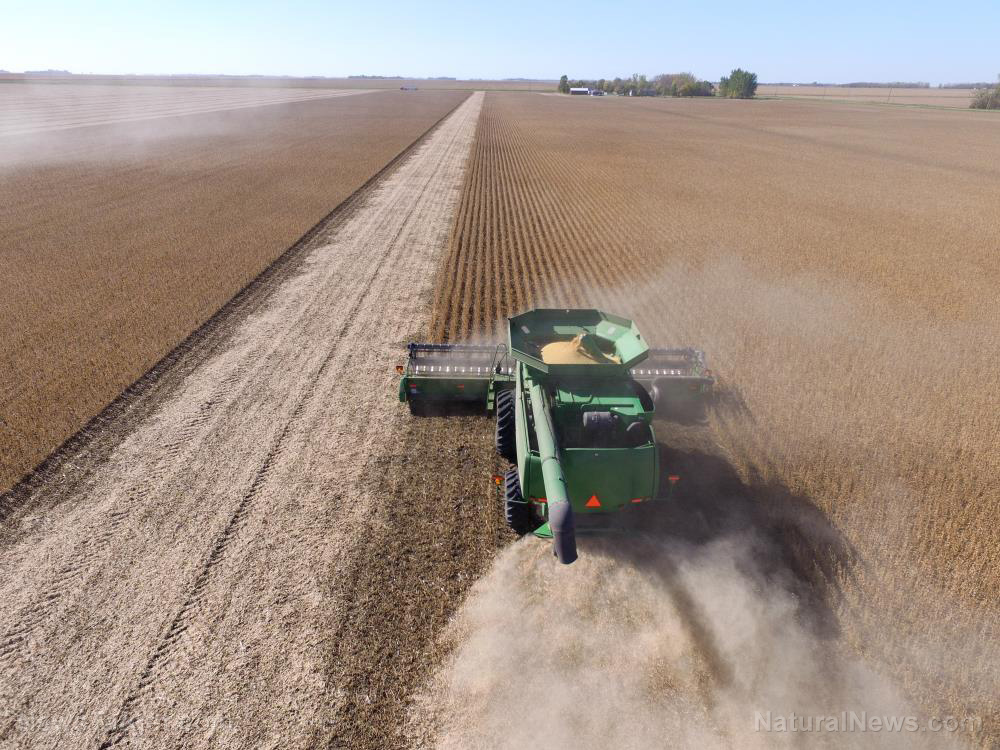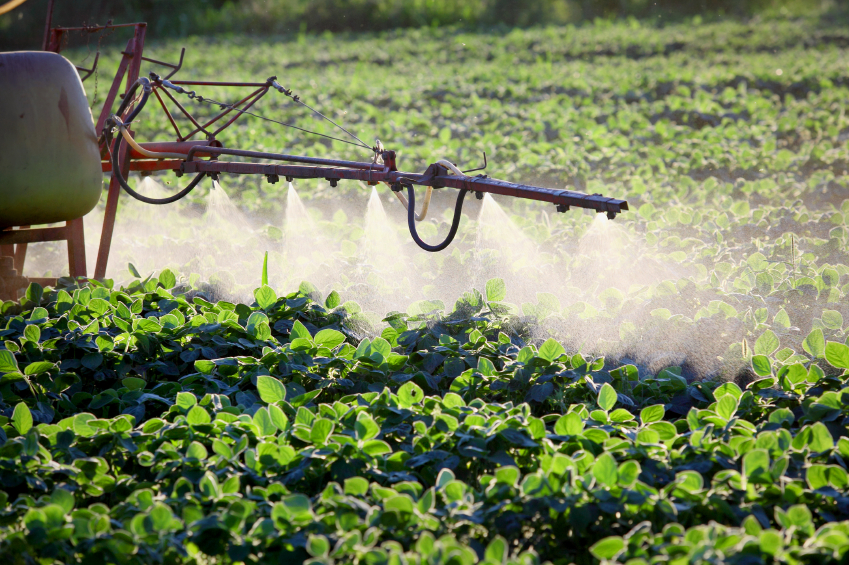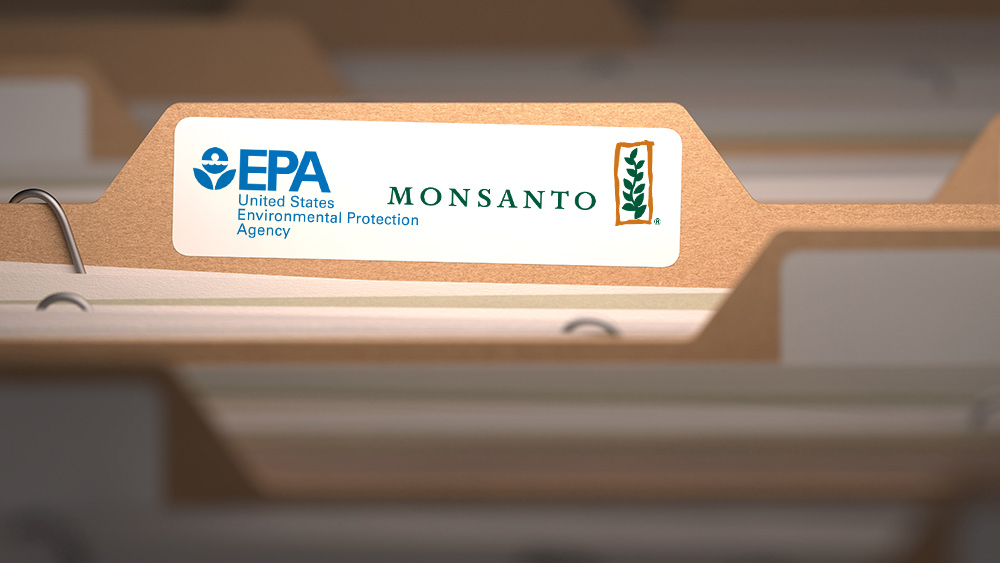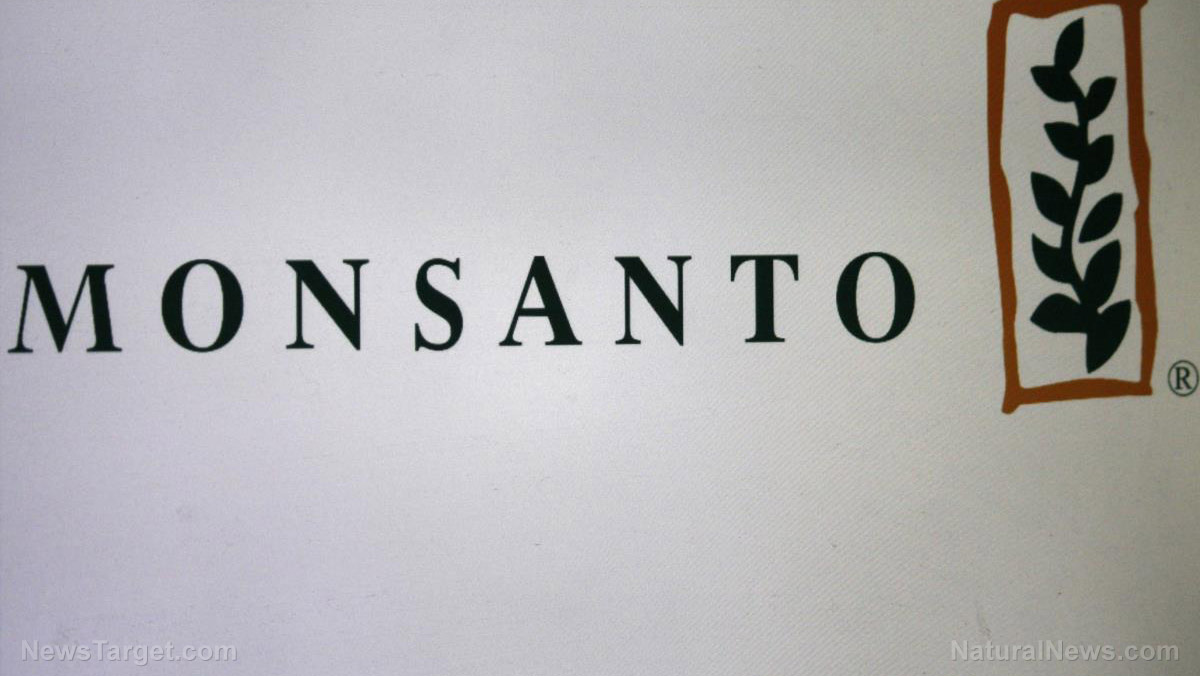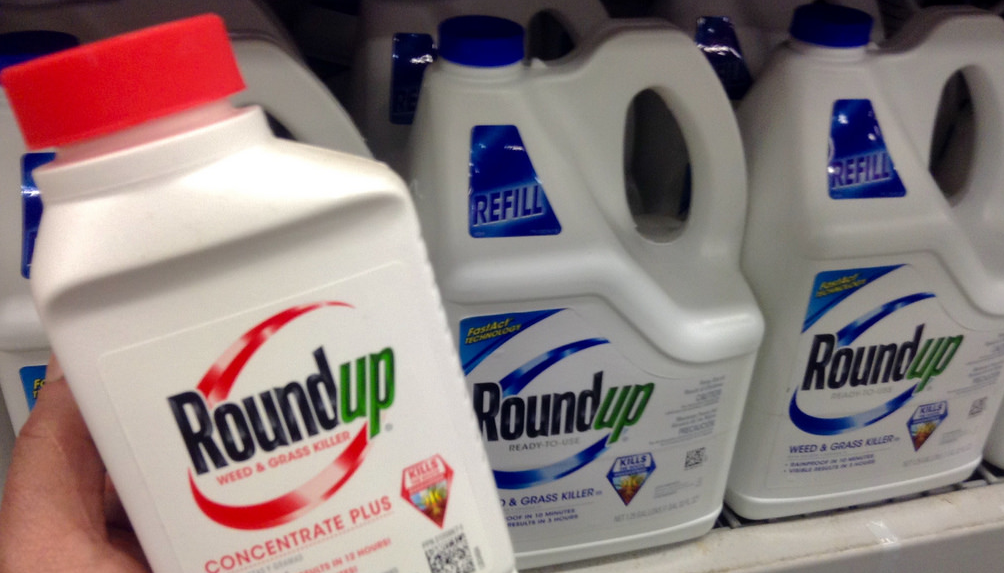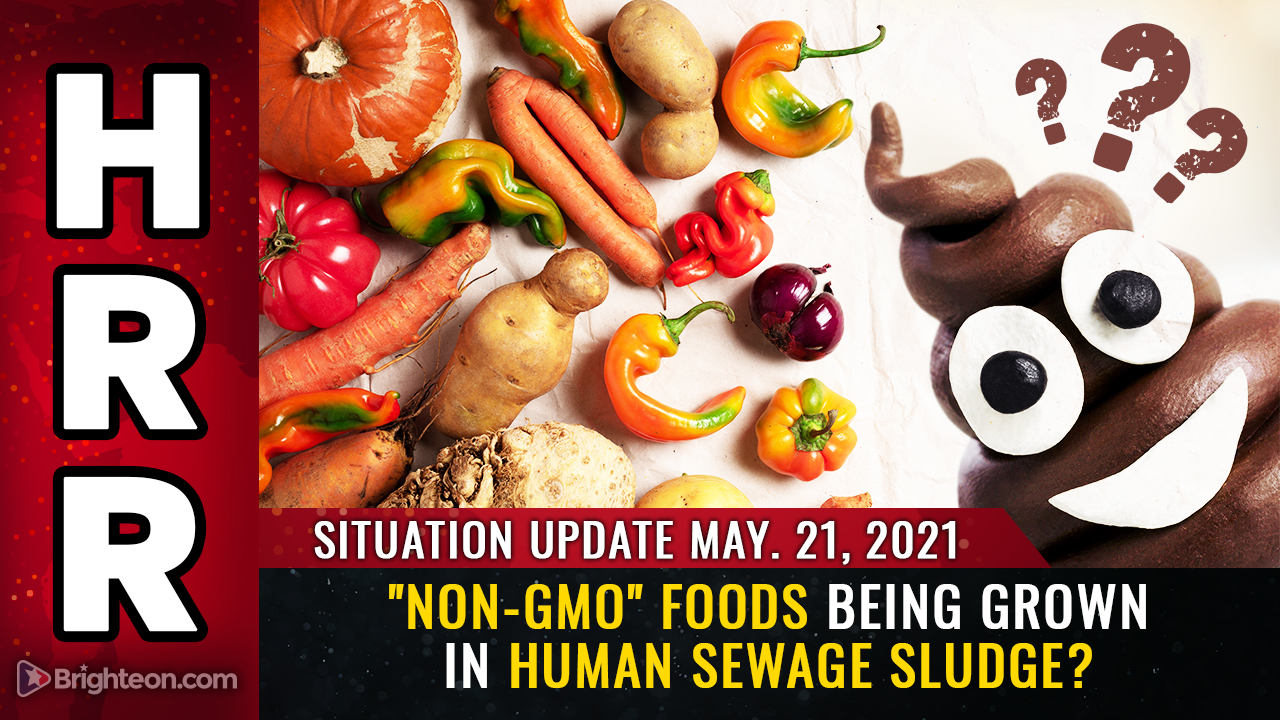The Impossible Burger found to contain glyphosate herbicide, but not at insane levels
11/07/2019 / By Tracey Watson

People have a whole lot of reasons for becoming vegans. Animal lovers cite ethical concerns, environmentalists worry about the impacts of raising animals on the environment, and global warming alarmists are convinced that agriculture is a significant driver of climate change. And then there are those who commit to the austerity of veganism simply because an influencer on Instagram makes it seem trendy.
Whatever their reasons for giving meat the chop might be, for many people committing to never eating a juicy burger again is really, really tough. And, as the number of consumers seeking alternatives to meat has continued to grow, enterprising companies like Beyond Meat and Impossible Foods have capitalized on that longing by going all out to create completely plant-based alternatives that actually taste like real meat.
However, while cutting down on red meat is certainly not a bad idea for those looking to improve their health, that doesn’t mean that adopting a vegan lifestyle and reaching for a “fake” burger is necessarily healthier. In fact, recent tests conducted by Health Research Institute Laboratories (HRI) on behalf of Moms Across America, found that the Impossible Burger contains cancer-causing glyphosate.
The problem with glyphosate
For a very long time Monsanto got away with using glyphosate in its popular Roundup weed killer product. When scientists and members of the independent media spoke out about the dangers of Roundup’s main ingredient, Monsanto was quick to produce scientific “evidence” supposedly proving that it was totally safe to douse crops in this toxic chemical.
The secret to Monsanto getting away with this deception was a decades long unholy alliance with the Environmental Protection Agency.
Natural News previously reported:
Did the U.S. Environmental Protection Agency run cover for biotech behemoth Monsanto for years to hide the cancer-causing properties of one of the agri-giant’s most profitable chemicals? Absolutely, asserts Dr. Anthony Samsel, a research scientist and consultant who says he has EPA documents in his possession which allegedly show that Monsanto was aware of research tying glyphosate, the primary chemical in the company’s popular Roundup herbicide, to cancer since the 1970s.
That all changed in 2015, when the World Health Organization’s International Agency for Research on Cancer classified glyphosate as “probably carcinogenic [cancer causing] to humans.”
Lawsuits followed, and suddenly everyone realized what Natural News had been warning about for years: Glyphosate causes cancer. (Related: Glyphosate and cancer — Read how this deadly weed killer promotes multiple myeloma, leukemia, sperm damage, infertility, kidney damage, autism, endocrine disruption, DNA damage and birth defects.)
The impossible-to-understand burger
Knowing that glyphosate is a potential pro-cancer agent makes it a really unattractive chemical in a burger, yet that is exactly what researchers from HRI discovered when they ran tests on Impossible Foods’ Impossible Burger. Notably, the concentrations of glyphosate found in the burger, however, were not considered especially high, according to GlyphosateTested.com standards.
Moms Across America reported:
Today, Moms Across America announces that the Impossible Burger tested positive for glyphosate. The levels of glyphosate detected in the Impossible burger by Health Research Institute Laboratories were 11 X higher than the Beyond Meat Burger. The total result (glyphosate and its break down AMPA) was 11.3 ppb. Moms Across America also tested the Beyond Meat Burger and the results were 1 ppb.
Zen Honeycutt, director of Moms Across America, warned, “This new product is being marketed as a solution for ‘healthy’ eating, when in fact 11 ppb of glyphosate herbicide consumption can be highly dangerous. Only 0.1 ppb of glyphosate has been shown to alter the gene function of over 4000 genes in the livers, kidneys and causes severe organ damage in rats. I am gravely concerned that consumers are being misled to believe the Impossible Burger is healthy.”
CWC Labs founder and science director Mike Adams, also the publisher of Natural News, says 11.3 ppb is nothing to be concerned about. “With strict EU standards set at 100 ppb for most foods, and the Glyphosate Tested rating of A++, we would not consider 11.3 ppb to be an alarming result. We routinely see ten times this concentration, or higher, in popular oatmeal brands, children’s cereals and nearly all products made out of beans and legumes,” says Adams. “As much as Moms Across America does very important work raising the awareness of glyphosate contamination of popular foods, there are thousands of food products with significantly higher glyphosate concentrations than 11.3 ppb. In fact, we’ve seen far higher levels from food samples taken from the Whole Foods self-serve food bar.”
Adams says his own lab will also test the Impossible Burger for glyphosate, which may produce a different result since food composition varies from lot to lot.
Discover where else this toxic chemical is lurking at Glyphosate.news.
Sources for this article include:
IARC.fr[PDF]
Submit a correction >>
Tagged Under:
agriculture, cancer, climate change, deception, environment, farming, global warming, glyphosate, Impossible Burger, Impossible Foods, toxic ingredients, veganism, vegans
This article may contain statements that reflect the opinion of the author
RECENT NEWS & ARTICLES
COPYRIGHT © 2017 GLYPHOSATE NEWS




